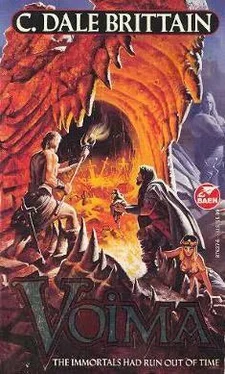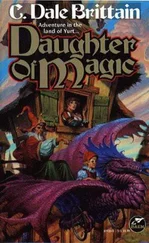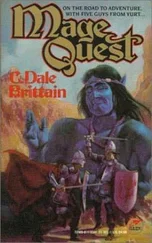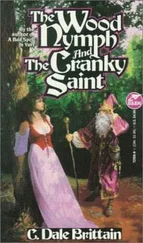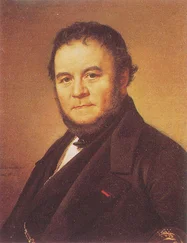C. Brittain - Voima
Здесь есть возможность читать онлайн «C. Brittain - Voima» весь текст электронной книги совершенно бесплатно (целиком полную версию без сокращений). В некоторых случаях можно слушать аудио, скачать через торрент в формате fb2 и присутствует краткое содержание. Жанр: Фэнтези, на английском языке. Описание произведения, (предисловие) а так же отзывы посетителей доступны на портале библиотеки ЛибКат.
- Название:Voima
- Автор:
- Жанр:
- Год:неизвестен
- ISBN:нет данных
- Рейтинг книги:3 / 5. Голосов: 1
-
Избранное:Добавить в избранное
- Отзывы:
-
Ваша оценка:
- 60
- 1
- 2
- 3
- 4
- 5
Voima: краткое содержание, описание и аннотация
Предлагаем к чтению аннотацию, описание, краткое содержание или предисловие (зависит от того, что написал сам автор книги «Voima»). Если вы не нашли необходимую информацию о книге — напишите в комментариях, мы постараемся отыскать её.
Voima — читать онлайн бесплатно полную книгу (весь текст) целиком
Ниже представлен текст книги, разбитый по страницам. Система сохранения места последней прочитанной страницы, позволяет с удобством читать онлайн бесплатно книгу «Voima», без необходимости каждый раз заново искать на чём Вы остановились. Поставьте закладку, и сможете в любой момент перейти на страницу, на которой закончили чтение.
Интервал:
Закладка:
“Did you think the dead knew anything, Slut’s-get?” replied Eirik, but the insult sounded hollow, especially in a whisper. “Why should they in dying gain any knowledge they did not have in life?”
Gizor was standing now, still eyeing them with dead gray eyes. “You are not planning to avenge yourself on me here in Hel?” Roric asked boldly. He reached over and tugged at the sword at Eirik’s belt, and again a few notes of the songs of voima rang out before Eirik smacked his hand away.
Seeming to become more solid at that sound, Gizor swayed on his feet. “There is no vengeance in Hel,” he said slowly and expressionlessly, “any more than there is honor or voima. But you defeated me using what I taught you myself. My memory and honor live with you and in the only place they can live, in mortal realms.”
Roric nodded gravely, then turned to walk on. But there was a faint rustling behind him. He looked back. The wight was following them.
“Faster,” hissed Eirik. “He won’t keep up.” But Gizor did keep up, staying about ten feet back. The murmuring of the awakened voices of the dead grew slowly louder, and when Roric, against his will, glanced back again he saw that Gizor had been joined by other shadowy shapes.
He found himself walking faster and faster and glanced at Eirik to see how he was taking it. But the outlaw king now looked thoughtful and was muttering to himself. “So they do not attack the living. Perhaps a living man could become their leader.”
Roric stopped and turned around. “Why are you following us?”
“I thought you might need a guide,” croaked Gizor.
“And where will you guide us?” asked Roric. “As you must know,” making himself chuckle, “Hel has to be vaster than the earth itself to hold all those who have ever died, and living men would not want to wander its halls forever!”
“I can take you to the lords of death,” said Gizor expressionlessly.
“So the dead will guide the living if asked,” muttered Eirik as if in calculation.
“Then take us there!” cried Roric. He had already spoken once to Death, but it was either find something different among these endless halls or else lie down himself until he too faded away.
Gizor went before them, shuffling, and more and more of the dead rose as they passed and closed ranks behind them, continuing that faint mutter that had become like a conversation where one could not quite catch the words.
Again they walked through halls that all seemed the same, glowing with the same faint light, for a distance and a time that seemed to stretch out endlessly. But it was not unchanging now, for as living men passed through more of the halls of Hel more of the dead broke from their apathy to follow them. And then they turned a corner and saw a gigantic chamber before them.
Its ceiling was high, its spaces vast. It was wide enough that in the center spread a sunless sea, and on the shore stood a dark tower, its windows not squares of light but of even deeper darkness.
Gizor and the rest of the dead fell back as Roric and Eirik continued warily forward. As they approached the tower they could see within its darkness a mist just a little denser than mist should be. Shining in it were two points of light like coals almost burned out.
Eirik dropped to his knees. “I serve you, lord,” he said as though the words were wrenched from him. “I have always sent men to you, and now I come myself.”
“With a little help from me,” muttered Roric.
Faint and cold behind them, from all the passages they had traversed, came the muttering of the dead who had seen the living walk by. Gizor One-hand and the other shadowy shapes massed together. “You come here alive in blood and breath,” said the voice from the mist, colder than any of the voices of the dead. “You have brought life to Hel where life has never been.”
When Eirik did not answer, Roric said to the glowing eyes, “I warned you what would happen if you tried to take over the realms of voima. For we are more than living mortals-we are mortals who have walked where only the immortals go.”
“You are the only power that all must obey in the end,” Eirik was still murmuring.
Roric ignored him. He stood with a hand on his hip, and a line from an old story flashed through his mind, “The hero faced down the lords of death themselves.” But he was not a hero, and in spite of his own bold words the one to whom all came in the end could never be faced down.
“The dead should fade, forgotten.” Again the voice in the coils of mist sounded uncertain. “If they did not, Hel itself would not hold them all.”
“And I have started to waken them?” said Roric. “And does this ”-he held high his charm-“bring a hint of voima even to the dusty halls of death? Shall I test more fully the effects of the Wanderers’ singing sword?”
“The dead… cannot wake. They must not wake.”
Too bad Eirik didn’t have his lyre, Roric thought. This would make a good song. “You hear them. You see them. They are waking now. Is two living men too many for you?”
“You do not want it, mortals,” said the voice from the mist, expressionless and cold. “You would not want the dead to become animate again, to rise from their burial mounds in mortal realms. If the dead do not stay dead, then the balance will be overturned and the earth shall collapse from too many of the living. One living man would not destroy the balance-I should be able to restore it. But two
…”
“Then listen to me!” Roric cried. “I shall leave, so that they may fade again, all those whose stories do not burn in story and song.”
“You cannot leave Hel,” said Eirik, turning on him, and his eyes too had turned to coals.
“Just watch,” said Roric. “First I ran from dishonor, when I knew that love and honor could not be found together. Then I determined to run no more, to fight dishonor by giving my life in battle. When you would not take it, Eirik Eirik’s son, I came here living. And I have discovered something. There may be honor in how one dies, but the real honor is in living one’s life as well as one can, until fate spells the end. There is no honor to be found in fleeing from failure to death.”
“Then what do you want?” growled Eirik.
“Life itself. All the powers of birth, growth, and love. I thought to find them in the realms of the lords of voima, but I found that even those lords can only guide and reflect that which comes from mortal life. And I shall not find those powers here. Love and birth come only to mortals who still live beneath the sun, but who know that they are not immortal and must seize life while they can.”
“All the burial mounds in the world,” said the voice so deep and so low he felt the words as much as heard them, “lead to this tower.”
“Then one should also be able to climb back the other way,” said Roric as confidently as he could. He backed away from the tower, looking around for some way that might lead out of here. “Outlaw! Are you coming with me?”
“No,” said Eirik quietly, almost in a mumble, then, “No! I was cast out, made a renegade, with all men’s hands against me. The woman I could have loved if she had given me a chance rejected me-and not even for another man, but for no one.” He lifted his head proudly. “But I have a power here that all the Fifty Kings cannot match. If there is no dying in Hel-as you and your friend Valmar made clear is not the case in the Wanderers’ realm! — then I have found the only way for mortals to become immortal. Only here, in the court of the forces of darkness, shall all men and women yield to me in the end!”
“I may be an outlaw too,” said Roric, in a voice he deliberately made loud and cheerful to echo through the halls of the dead, “but I know a woman who loves me. If not her lover anymore, I can still be her brother and do all within my strength to ensure her happiness.”
Читать дальшеИнтервал:
Закладка:
Похожие книги на «Voima»
Представляем Вашему вниманию похожие книги на «Voima» списком для выбора. Мы отобрали схожую по названию и смыслу литературу в надежде предоставить читателям больше вариантов отыскать новые, интересные, ещё непрочитанные произведения.
Обсуждение, отзывы о книге «Voima» и просто собственные мнения читателей. Оставьте ваши комментарии, напишите, что Вы думаете о произведении, его смысле или главных героях. Укажите что конкретно понравилось, а что нет, и почему Вы так считаете.
